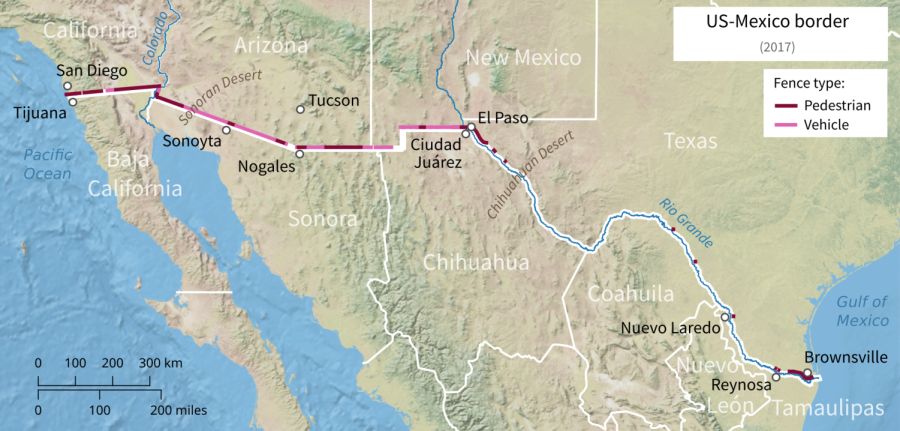This year, the UN Climate Conference (COP28) will start on November 30th and conclude on December 12th. 197 parties from around the world will gather in Dubai to confer about pressing environmental topics for its 28th time. COP28 means Conference of the Parties.
The question of the year: Will the level of urgency and action expressed by physical symptoms of climate change be able to make this conference the beacon of climate hope in the heart of an oil territory? The more frightening question: Will this conference simply blend as one of the others?
Leadership
The president of the conference, Dr. Sultan Ahmed Al Jaber, will be the first CEO to hold the position. His title brings controversy, however, as he is the CEO of both Abu Dhabi National Oil Company and Masdar energy, representing both fossil fuel and clean energy resources. Some attendees of the climate conference question his motives, claiming that Al Jaber may be using this opportunity as a business venture. In May, a group of US Senators and European Union lawmakers demanded a replacement for Al Jaber, however, no resolution was reached.
Aligning with his controversial business background is his even more controversial idea that the fossil fuel industry has a right of participation in climate discussion. With walls closing in on climate change, many proponents who advocate for a complete switch to clean energy, like the ambitious European Union, opposed his theory.
Overall, in past conferences Al Jaber has been said to be an “outcome-focused” participant, and claims he will carry that same perspective for the COP28— something desperately needed this time around.
Without replacement, his agenda follows the pressing environmental issues of today. On top of the president’s agenda stands reformation of climate finances by 2025, a more focal perspective on humanity during climate disasters, and keeping up with the ever-approaching 2030 goal of decreasing global warming temperatures by 1.5 degrees celsius (pre-industrial levels).
Climate Funding
Climate funding is being complained about as a major let down for both individual countries and the UN’s deadlines.
Back in Copenhagen at the COP16, it was decided that developed countries would contribute $100 billion altogether to assisting developing countries in their climate action plans. In Cancun at the COP21, the stipulation was continued for 4 more years. This year, complaints are arising before the 2025 cutoff.
Latin America has created an alliance on the issue for the first time, led by Columbia’s environmental minister, Susana Muhammad. Muhammad believes the funding directed has only done a “fraction of enough” for Columbia and surrounding countries. Amidst the current El Nino spike — creating drought, flooding, and food shortages— and subsequent destruction of citizens and forests, the group has since doubled down on their urgency for change. Muhammad states further, “I wouldn’t settle on a figure, but rather that mechanisms be made available for the scale of the problem”.
Her claims come in frustration of both the way climate funding has been delegated to developed countries and the overall drought of the fiscal help.
Since its establishment, the $100 billion per year plan has not cracked the target amount even once. So far this year, the UN has yet to gather more than $10 billion. Suspiciously low numbers have caused large contributors, such as Germany, to criticize the plan’s makeup.
German development minister, Svenja Schulze, comments,”I also increasingly see countries that are not traditional donors as having responsibility: for example the Gulf states, which have become rich from fossil fuels, or emerging countries like China.”
Schulze’s perspective of the flaws of the system itself is a popular one. He points out that some countries called to contribute money, such as the Gulf States, don’t share environmental interests at heart. Another issue that went unmentioned is that the largest polluters’, China, the United States, and Russia, lack significant contribution to the funding. Additionally, all three will not be in attendance for the upcoming COP28.
Reform calls for a policy change and liability change.
The Big Deadline: 2030
The largest aggregator for the need of climate finance reform are the ever-approaching 2030 deadlines.
Set in 2015 with the Establishment of the Paris Climate Agreement, the UN created 2030 deadlines for both a 1.5 degree celsius decrease in global warming temperatures and a Sustainable Development Plan, which includes 17 points for progress including environmental and civil reforms, such as making clean energy more affordable, creating cleaner cities, establishing responsible consumption, and ocean conversation.
Although 2023 is more than half a decade away from 2030, funding and action for these projects have been greatly under necessary numbers.
An estimate given at the UN Framework Convention on Climate Change (UNFCCC) calculated $200-250 billion would have to be contributed to funding each year until the big target deadline for 2030 has been reached. When recollecting the money provided from this year, these numbers seem impossible to reach.
These disagreeing figures are further backed by conclusive data from the newly implemented “inventory test”, The Global Stocktake (GST). Taken from two years of data analysis and meetings focused around technical dialogue, the GST draws on the collaborative thoughts of scientists, businesspeople, and communities in their experience of the progress of climate action in order to identify areas of assistance. The purpose of the new implementation is to inform decisions made at the COP28 about the next round of climate action plans under the Paris Climate Accords, set for 2025. Its creator, the UNFCCC, says, “It enables countries and other stakeholders to see where they’re collectively making progress toward meeting the goals of the Paris Agreement – and where they’re not.”
On September 8th, the first report was released. The report’s conclusion thesis states, “…since its adoption, the Paris Agreement has driven near-universal climate action”, further stating, “….much more is needed now on all fronts.”
The report breaks down several aspects of climate action planned for by the PCA including mitigation and response measures, adaptation and damage loss, and means of implementation of finance. Although the report recognizes the already made progress, the overall perspective of the data points to negative results in each sector. The report can be read in full here.
Expectations and Events
As the GST paints clear, action is becoming mandatory on all fronts. The larger outcome of the report puts emphasis on the climate actions for all citizens, private businesses, and governments. The daily lifestyles of average individuals are urged to become more sustainable, business and private development is asked to increase investment in clean energy to build its capacity, and the government is called to utilize the COP28 to create a viable response.
Objectively, this conference is one of high hopes and uncertainties. While environmental action has become an urgent necessity for the world, the COP28 will confirm if policy wants to recognize it.
Already, leadership from the world’s highest polluters will not be in attendance. Self proclaimed environmentalists and policymakers alike join behind territories such as the Eu to push big initiatives, including a deadline to phase out fossil fuels completely by 2050, a scaling climate finance, and a full relaxation of the Loss and Damage Fund— their major project.
Throughout the first week of scheduled meetings, analysis of the GST and climate finance negotiation and discussion will be on top of the agenda. An overview of daily covered topics and meetings scheduled within them are found on the UNFCCC website. Daily programmes, live streaming, and current blog posts are also constantly updated within the site.
Watch. Listen. Continue to advocate.







